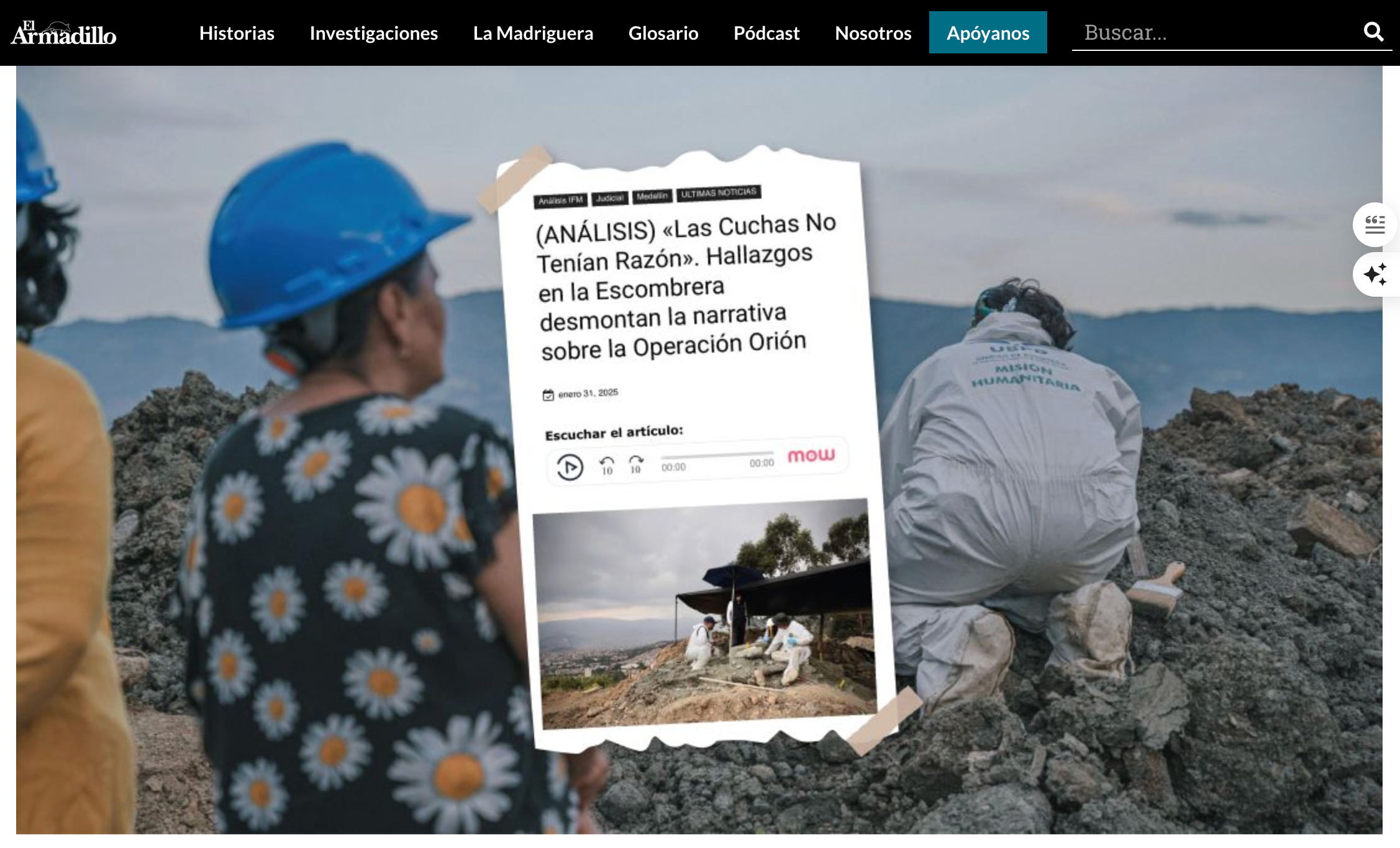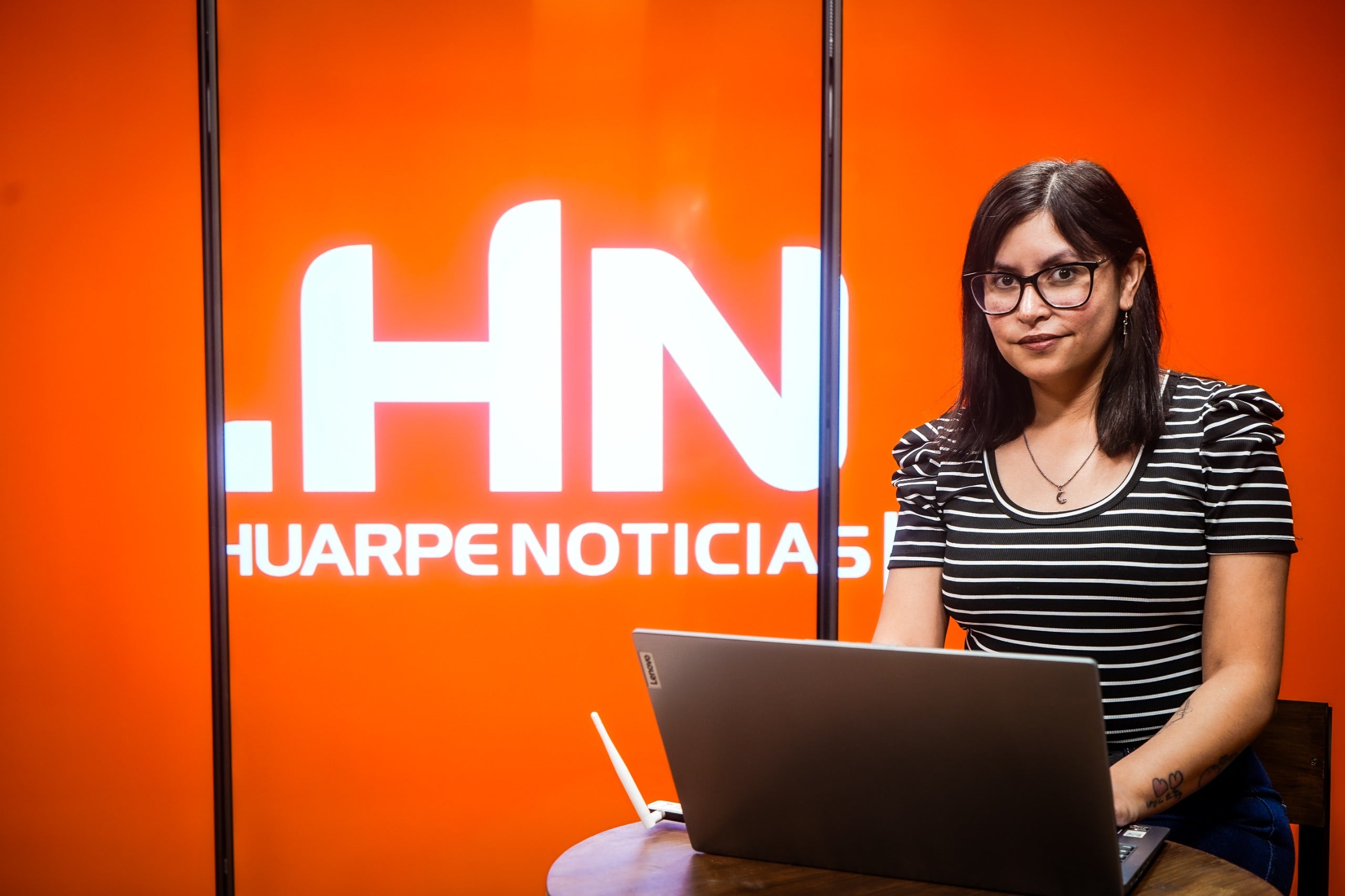Migration, elections, scams, the death of Pope Francis, and the conflict in the Middle East were the main topics that generated the most disinformation online during the first half of the year in Latin America, according to the Ibero-American and U.S. fact-checking network LatamChequea.
Much of that disinformation spreads mainly through viral content on social media.
In that context, having newsroom teams trained in verification methodologies and equipped with technological tools to verify information is a priority, according to the Argentine fact-checking organization Chequeado, which leads LatamChequea.
The organization launched in August the second edition of MediaFact Latam, a training and mentorship program designed to help media outlets across the region cultivate their ability to respond to viral disinformation. The program is carried out in partnership with Google News Initiative and LatamChequea’s allied organizations Mala Espina (Chile), Colombia Check (Colombia), Verificado (Mexico), and Ojo Público (Peru).

Colombian El Armadillo news site is applying the knowledge and tools acquired through MediaFact Latam in its daily work. (Photo: Screenshot of El Armadillo website)
One of the program’s goals is to equip participating outlets with the knowledge and tools to create flexible fact-checking teams that can step in fact checking is needed, said Chequeado’s executive director, Franco Piccato.
However, many small and local outlets face structural and funding challenges that prevent them from establishing dedicated verification units. Still, several outlets that participated in last year’s MediaFact Latam edition have already created teams of at least two people capable of responding to disinformation events.
“We know it’s a difficult time for creating permanent units within newsrooms,” Piccato told LatAm Journalism Review (LJR). “That’s why we’re betting on helping participating outlets create flexible fact-checking teams [...] so that when there’s a need for verification, they can quickly come together and take action.”
MediaFact Latam combines intensive fact-checking training by Chequeado, personalized mentorships with organizations in each country, and access to El Chequeador and El Desgrabador, two tools developed by Chequeado. This year, 16 outlets from Argentina, Chile, Colombia, Mexico, and Peru are participating.
El Armadillo, an independent local outlet in the Colombian department of Antioquia and its capital, Medellín, participated in the first edition of MediaFact Latam in 2024. That year, 50 outlets were selected, and 25 advanced to the mentorship stage.
As a six-person newsroom focused on investigative journalism, El Armadillo does not prioritize having a dedicated fact-checking unit. However, the outlet is applying the knowledge and tools acquired through MediaFact Latam in its daily work.
“In small outlets, complementarity, versatility in the newsroom, and flexibility in staff roles are very important,” said El Armadillo co-founder Mateo Isaza in an interview with LJR. “Having training and installed capacity among staff in verification methods is something newsrooms must do, especially small ones, because resources are limited.”
Among the techniques El Armadillo has implemented are source cross-checking methodologies, tools for archiving social media posts, and the detection of disinformation accounts and bot farms, Isaza said. He cited as an example a report about a protest in Medellín against the genocide in Palestine that took place in early October.
The team used several of the techniques taught by Chequeado and ColombiaCheck—the organization that mentored them—to reconstruct the events and explain how a group of civilian contractors for the Medellín mayor’s office repressed the protest before the police intervened.
“It was super important to have those verification tools and to be able to compare those versions and images circulating with accusations against public officials and protest organizers,” Isaza said. “That kind of training really shields you from errors, bias, and superficial approaches to journalistic topics.”
In Argentina’s San Juan province, even the largest media outlets lack the resources to create verification units, said journalist Ana Paula Gremoliche, who has worked at two of the biggest newspapers in the region.
“We don’t have a media outlet here in San Juan with the financial ability to keep a dedicated verification team,” Gremoliche told LJR. “I now work at El Tiempo de San Juan, which is another fairly large outlet in the province, and in the afternoon shift, we’re just three people.”
Gremoliche, who participated in MediaFact Latam 2024 as part of the team at Diario Huarpe, where she worked at the time, emphasized the importance of sharing knowledge from trainings like this with the rest of the newsroom.
“You’re left with that learning experience and the ability to tell a colleague, ‘I don’t think this is quite right,’ ” she said. “That’s the most valuable lesson from these trainings: making your colleagues aware that they might be facing a fake news story or another kind of disinformation.”
Yanina Paez, who also participated in the initiative representing Diario Huarpe, said that although the outlet doesn’t have a fact-checking unit, she and a colleague were assigned to intervene whenever the newsroom encounters questionable content.
“There’s someone on the morning shift and someone on the afternoon shift, so if any kind of disinformation comes in, they’re specifically in charge of that topic,” Paez told LJR.

Yanina Paez, a journalist who participated in MediaFact Latam 2024, is responsible for addressing cases of disinformation during the afternoon shift at the Argentine newspaper Diario Huarpe. (Photo: Mariano Martín / Diario Huarpe)
Sandro Mairata, disinformation editor at the Peruvian investigative site El Foco, which also participated in the first MediaFact Latam edition, said that for an independent outlet like theirs, which depends on grants and external funding, it’s not feasible to set up a verification unit.
However, Mairata said that after the mentorship program, El Foco refined its processes, including appointing him and another reporter to take charge when verification is required.
“The MediaFact experience was useful to help us understand how to organize, automate, and tackle portions of this problem with our resources,” Mairata told LJR. “We can’t aim to cover everything because it would be an extremely difficult task.”
MediaFact Latam participants agree that one of the program’s main contributions was opening their eyes to doubt.
In the age of AI, it’s especially valuable to be part of initiatives that make journalists aware of the latest trends in disinformation and the new, sophisticated mechanisms capable of deceiving the human eye, Isaza said.
“[We learned to] sharpen our view a lot and be very critical when watching, for example, a video of a political figure saying something extremely controversial,” Isaza said. “[We learned] to look for those small details that make you question it, to expand your search, and to carry out a minimum, simple, but very valuable contrast exercise.”
In the lead-up to Argentina’s midterm elections on Oct. 26, several cases of deepfake videos and photos were documented. Similar cases occurred in the elections that brought President Javier Milei to power.
In that context, Gremoliche found great value in learning to develop a more critical eye when analyzing images and video.
“Before, everything was assumed to be real,” she said. “Nowadays, that kind of evidence is no longer irrefutable. This critical and journalistic lens has helped me a lot in my later work, especially in politics.”
El Chequeador, one of the tools available to MediaFact Latam participants, has played an important role in verifying images at Diario Huarpe, especially those related to digital scams and natural disasters, two of the most common categories of disinformation in their newsroom, Paez said.
The tool, launched by Chequeado in 2024, is a virtual assistant for verifying viral disinformation that guides users step-by-step through the fact-checking process, making it faster and more efficient, according to Piccato.
El Chequeador is free and open to the public, but MediaFact Latam participants received access to a paid version that includes AI features, such as generating draft articles based on fact-checks.
“It helped us verify photos, for example, of natural disasters. There’s always disinformation using images from other parts of the world that aren’t actually relevant or real,” Paez said. “When cases like that appear, whether here or elsewhere, we verify the photo, do a reverse image search, and confirm whether that information is true.”
In Peru, electoral campaigns are approaching in 2026, a year of national and regional elections.
For Mairata, that represents significant opportunities for disinformation to spread. For that reason, El Foco’s team began developing strategies to combat this flood of misleading content as efficiently as possible for a team of just eight journalists.
FOCO-FACTOS | Es FALSA la afirmación de @elonmusk y de la @WhiteHouse sobre supuestos “cómics trans” financiados en el Perú por USAID.#FactChecking de EL FOCO:https://t.co/o9kNaAz20O pic.twitter.com/8fXBXUqmpc
— El Foco (@elfoco_pe) February 13, 2025
El Foco used its participation in MediaFact Latam to create two initiatives. One is Foco-Factos, a project focused on real-time verification of political statements. With this, the outlet seeks to streamline the fact-checking process, following an approach learned from another Peruvian outlet, Ojo Público, Mairata said.
“At Ojo Público, they’re very structured and meticulous about accuracy. They verify exhaustively and apply the method rigorously to ensure every step is followed before publishing,” Mairata said. “At El Foco, we’re looking for ways to make this process faster.”
Foco-Factos will consist of validating or debunking politicians’ and candidates’ statements in one or two paragraphs as they are made, then gradually developing those into full fact-checks, he said.
They are also preparing a comic book aimed at young audiences to raise awareness about electoral disinformation. However, both projects are currently on hold pending funding, Mairata said.
“I think MediaFact Latam’s foundation was solid—the method was strong, and the training was very good,” Mairata said. “That motivated us to create this, to shape our own projects.”
This article was translated with the assistance of AI and reviewed by LJR staff.